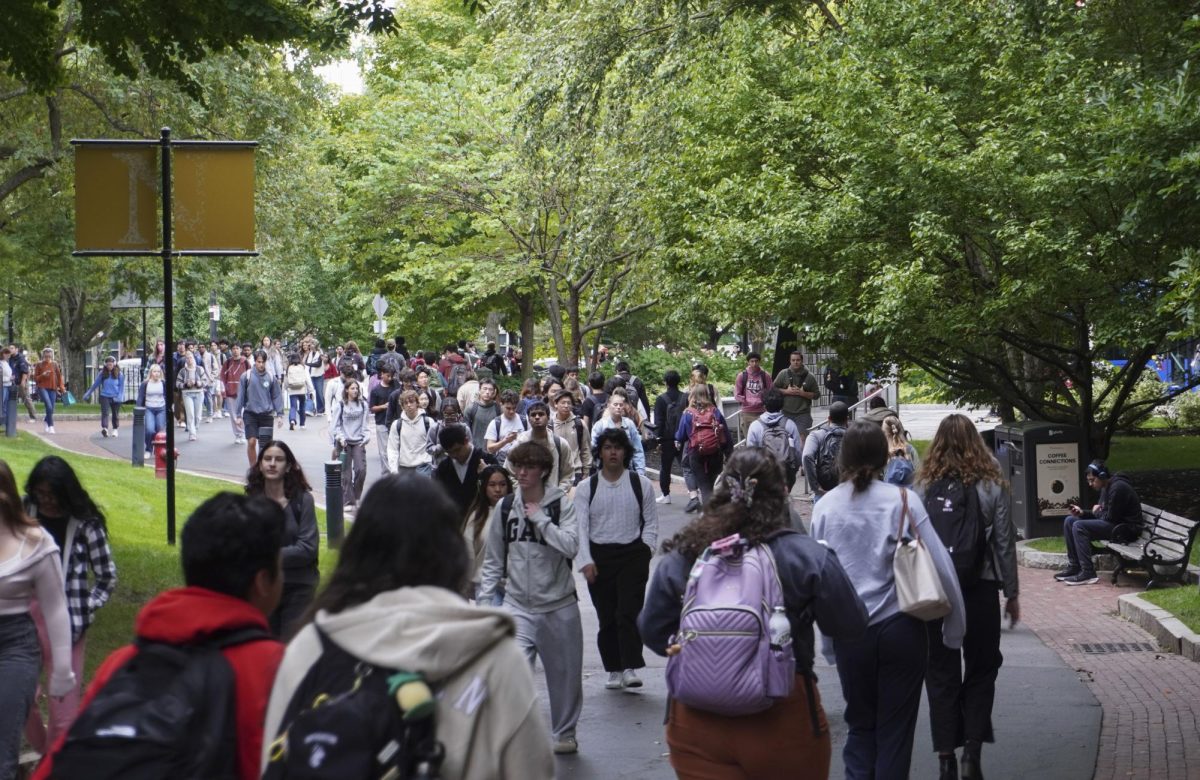Northeastern students are often quick to be critical of the university’s senior administration, calling out top officials for any number of issues. But in one area, the administration deserves credit and respect: Northeastern’s commitment toward recycling waste on campus. The university recycled nearly a third of its waste last year (30% in 2007), reusing everything from cans to computers to carpet.
Compare that to the city of Boston as a whole, which recycled just 12 percent of its waste in 2006, according to the most recent data on the city’s website (Northeastern recycled 25 percent of its waste in the same year). Northeastern’s success comes from a tried and true method: trash is sorted as it is thrown away; recyclable waste is taken to a Jamaica Plain warehouse and finally to a Westborough recycling plant. Northeastern’s recycling methods were the model for Harvard’s hugely successful program, according to Harvard’s recycling and waste manager.
Nearly every building on campus has recycling bins, encouraging students to sort their waste. The sheer number of recycling bins on campus can be seen as a testament to the program.
But perhaps even more admirable is that the university doesn’t broadcast its recycling successes. Instead, it recognizes the program as the right thing to do rather than as a ploy for a public relations marketing scheme.
Despite criticism from student groups on campus, the university is reducing its carbon footprint. New buildings are being built to more eco-friendly standards and energy-saving technologies are being implemented around campus. President Joseph Aoun has pledged to create a plan to make the university carbon neutral by 2009. A print quota has reduced the number of needless pages from being printed in campus labs. These policies have all significantly reduced the resources that go to waste at Northeastern.
Northeastern’s recycling program is more than 15 years old, but it continues to evolve along with demands to be more environmentally sound. Just this year, Northeastern and Chartwells, the university’s food service provider, introduced the Clean Plates Initiative, which expanded recycling efforts to the dining halls. Uneaten food now gets composted rather than thrown away.
Sure, it’s possible to recycle more. But for that to happen, we, the student body, need to take more action, making sure to sort paper, glass and plastic waste into the bins in our residence halls. We should put less food on our plates at the dining halls – since it’s all you can eat, you can always get more. When you finish reading this newspaper, toss it in a recycling bin rather than the trash.
So while it is often easy to blame the administration, there are times we, the students, must look inward. The university’s methods are sound, thorough and effective; now the students need to follow suit.









